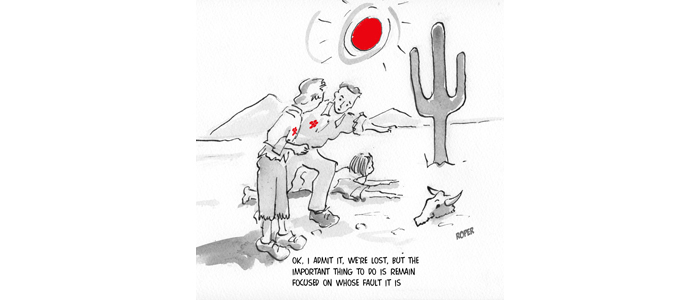This article looks at the current crisis in politics and suggests 7 do’s and don’ts for leaders everywhere.
Leadership in the political parties is currently in meltdown. Right now it feels like we’re in the middle of a rather surreal case study, and there are some serious lessons about leadership to think about.
Regardless of how you voted in the referendum, you might agree with us that we are seeing the best, the worst and the indifferent in our political leadership. Here are 7 observations, with examples from the current political situation. Depending on your politics you may feel the examples are skewed. I understand that, so I will make the point that I wanted to remain in the EU. However, this is not about my personal feelings, but intended to be a more objective look at what it takes to be a leader.
The Gallup organisation has done extensive research on what people look for in their leaders. You may call these attributes by different names, but Gallup has distilled all their research down into 4 key leadership traits: Stability, Hope, Compassion and Trust.
Bearing these key qualities in mind here are some do’s and don’ts:
- Keep in mind that people need stability. If you are going through radical change and you want to take them with you, you have to keep reassuring them. You have to keep communicating and manage your own behaviour rigorously and constantly. They will be looking for any sign of nerves or lack of integrity on your part. Mark Carney showed leadership when he made his announcement about the contingencies that had been put in place with the banks. The Tory leadership (certainly in the immediate aftermath) pretty much went to ground.
- You may call it hope or you may call it your vision but people need to believe in something – a better, brighter future with you at the helm. The hope and vision on both sides of the campaign was woeful. There was a lot of fear (we’ll have a recession, we’ll be overrun with immigrants) and distorted facts. The UKIP poster showing refugees fleeing Syria was indeed shocking. The Remain camp didn’t paint a brighter future, they wanted to Remain. But the status quo isn’t a vision, it’s Groundhog Day.
- The increase in hate crime following the result is worrying. This is acknowledged by most politicians but it’s not enough just to show compassion to those who are suffering. The leadership is going to need to come down hard on this, and quickly, if Britain is to remain a welcoming, tolerant country. Politicians talk a lot about compassionate leadership but it needs to be consciously at the heart of what they do.
- Whoever becomes the leader of our country and the leader of the opposition that holds the government accountable, he or she is going to need to rebuild trust. We will have to believe that they can heal the divide and negotiate the best deal for us in uncharted waters. It’s a big ask and they will need to be squeaky clean and utterly trustworthy.
- Leaders need to be authentic or they erode trust. When Boris Johnson was campaigning to be Mayor of London in 2012 you felt there was never any question that he believed that London was the best city in the world. The passion shone through every speech he made during the campaign. His clearly more muted feelings about leaving the EU showed during his campaigning for Brexit. It felt like he had his own agenda. Nicola Sturgeon and Ruth Davidson are both authentic and passionate and it shows. Boris has no doubt opted out of the leadership contest for a number of reasons, but it is hard to be authentic and stand firm when you are (however marginally) out of step with your principles and your integrity.
- Be strategic, and if this isn’t your default way of thinking make sure you have people in your team who are, and listen to them. Being strategic isn’t a skill you can really learn. It is a way of looking at a situation and seeing a pattern and way through where others will only see confusion. You have to constantly ask ‘so what if this happens, what if that happens’. Whoever leads the negotiations for Brexit will need to either be strategic or have some good strategic thinkers on the team.
- Show emotional intelligence. You may have high integrity and principles but you also need to read the situation with emotional intelligence. You cannot stay as leader just because you’re propped up by the democratic process and have support at grass roots level, when your MPs are talking about the Labour party having an existential crisis.
A final thought. The utterly disgraceful sight of Nigel Farage crowing in the European parliament, telling his fellow MEPs that ‘they’d never done a day’s work in their lives’ has been one of the ugliest moments in an already unedifying few months. Leaders need to be graceful in both defeat – and victory.

